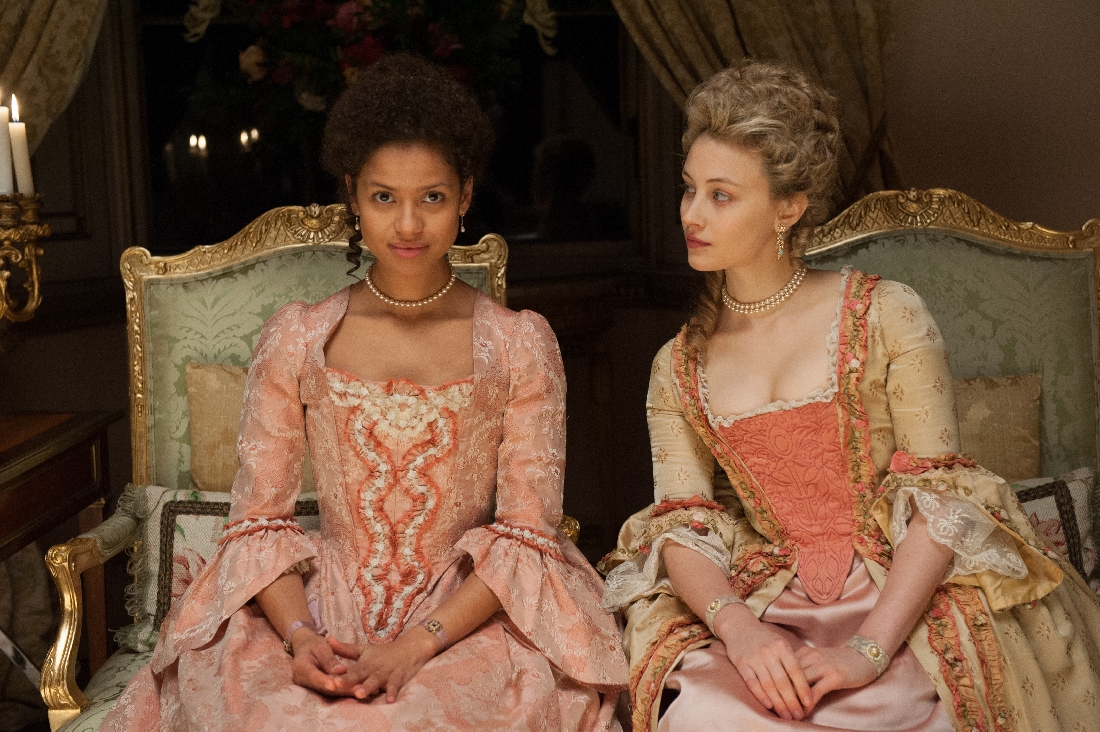If you’re like many people, 12 Years a Slave was the first film you saw by a black British director. Maybe you wondered whether there were any more in the pipeline. Your answer comes in the form of Belle, a movie written and directed by two black Englishwomen that opens in Arlington this week and additional theaters next week. Theirs isn’t the smoothest piece of work, but they do have a hell of a story to tell.
It’s based on the life of Dido Elizabeth Belle, who was born in England circa 1761 to a Royal Navy captain and an African slave woman. Dido’s father left her in the care of his uncle, the first earl of Mansfield, who took the unusual step of raising Dido as his own child alongside another grandniece, Elizabeth, who was near Dido’s age. The earl just happened to be the Lord Chief Justice of England, the country’s highest legal authority, and he would later rule on two cases that severely curtailed the power of England’s thriving slave trade. There’s no historical record of anything Dido said or thought, so the idea that she might have influenced Lord Mansfield’s rulings is only conjecture. But as conjectures go, it’s pretty irresistible.
Director Amma Asante and screenwriter Misan Sagay find much rewarding material in their heroine’s singular and often uncomfortable social position: Early on, Dido (Gugu Mbatha-Raw) asks Lord Mansfield (Tom Wilkinson) why she’s too good to take meals with the servants but not good enough to eat with the family when they’re entertaining visitors. Living on a big estate, Dido is afforded rare privileges for someone of mixed race, especially after her father (Matthew Goode) dies at sea and leaves her a fortune. Yet 18th-century customs demand that she marry, and her skin color repels most suitors while Elizabeth (Sarah Gadon) attracts more attention, despite having no money of her own.
This setup sounds like a Jane Austen marriage comedy with race thrown into the mix, and at the movie’s best, that’s how it plays. Yet this thing is undeniably stilted. Asante doesn’t have much comic timing, and Dido’s romance plays out with no suspense because the humble antislavery firebrand (Sam Reid) who woos her is clearly so much better than the fortune hunter (James Norton) who’s after her money. In trying to cover all the different class, race, and gender issues in play, the script often feels like it’s ticking off items from a checklist. (Compare 12 Years a Slave, which covers similar ground with much more suppleness and spontaneity.) I’m not the biggest fan of Mbatha-Raw’s acting, either, though she is stunningly beautiful and has some nice moments in the later scenes when Dido stands up to the racism of her time.
Even had Dido Elizabeth Belle never lived, this movie would need to exist, and it works well enough to make us glad that it does. So much great English literature was spawned by the question, “What is a woman to do?” Belle is a bracing reminder of what’s often left out when that question is asked.
[box_info]
Belle
Starring Gugu Mbatha-Raw and Tom Wilkinson. Directed by Amma Asante. Written by Misan Sagay. Rated PG.
[/box_info]












